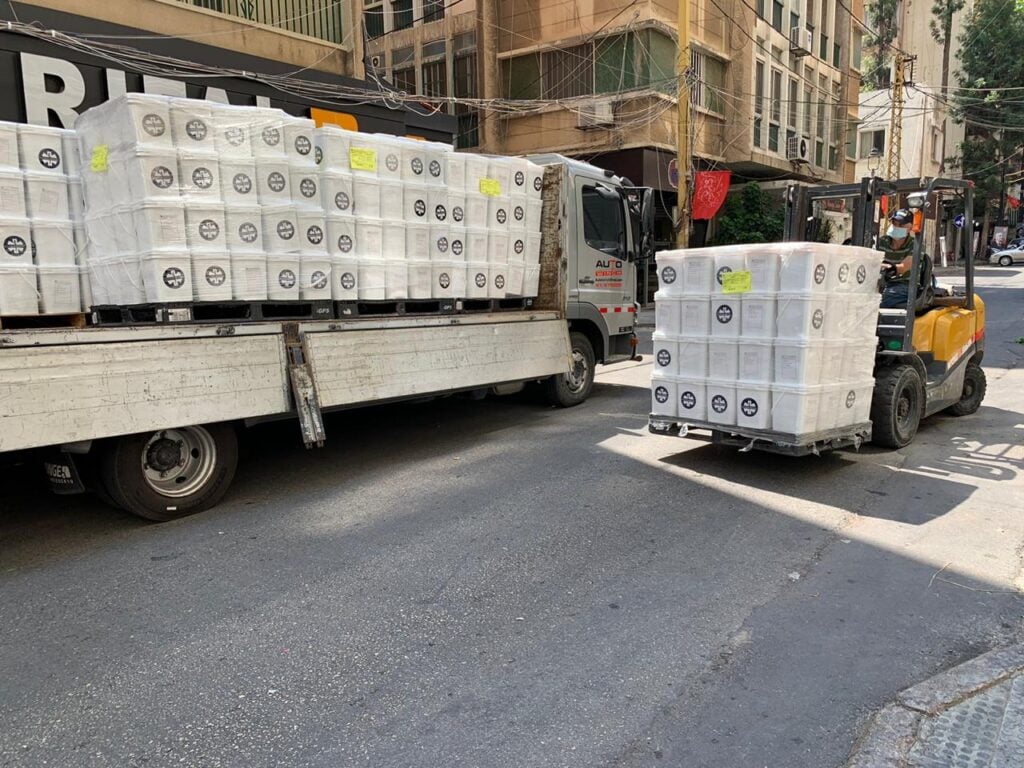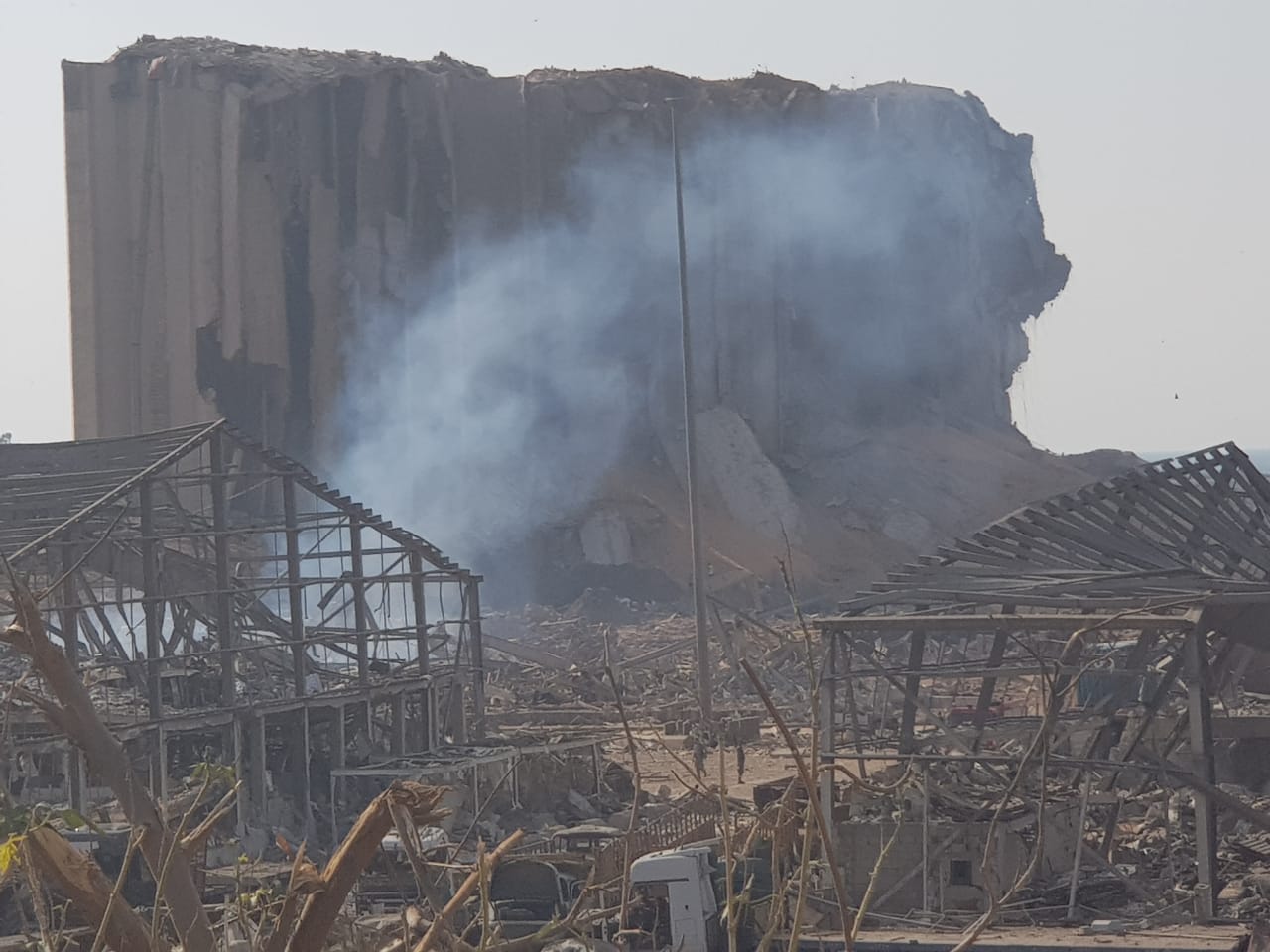On Tuesday, August 4th at 6:07pm, a large explosion erupted in Beirut, the capital city of Lebanon. The explosion took place in the country’s main port, located in the highly populated central district. The cause of the explosion has been linked to 2,750 tons of ammonium nitrate, a highly explosive material, which was being stored in a warehouse in the city’s port. The explosion’s blast shattered glass throughout the city resulting in damage to buildings as far as 10 km away. As a result of the explosion, there was an estimated 3 to 5 billion US dollars in damage. In addition, the blast severely damaged grain silos, which housed much of the country’s grain supplies. With more than 100 people killed and 6,000 injured from the blast, the city of Beirut declared a two-week state of emergency.
100+ PEOPLE KILLED
300,000 PEOPLE DISPLACED
6,000 PEOPLE INJURED
The effects of the explosion were felt throughout the city, with more than 300,000 people displaced from their homes. Four of the city’s hospitals were severely damaged and therefore unable to provide assistance. The remaining hospitals were overwhelmed by the influx of injured people as well as the ongoing COVID-19 pandemic. This explosion also took place during the worst financial crisis in the country’s history. Since the country’s main point of entry for imports was destroyed and extensive infrastructure damaged throughout Beirut, people were in need of immediate assistance. GlobalMedic responded.


Our Response
We packed Family Emergency Kits and Emergency Food Kits to distribute to families affected by the explosion in Beirut. The Family Emergency Kits included a water purification system, basic hygiene items, and a solar light. The water purification system was vital because many families lost their homes and access to clean drinking water. The hygiene items are included to help families regain a sense of normalcy as well as prevent the spread of COVID-19. The solar lights provided much needed light and security since many were without electricity. The Emergency Food Kits provided families with culturally appropriate dried food items. An immediate response was crucial in order to reach individuals and families dealing with the devastating effects of the explosion.
We distributed more than 8,300 Emergency Food Kits and 2,900 Family Emergency Kits during this response. We worked with our local partners to ensure the aid reached those who needed it most.



